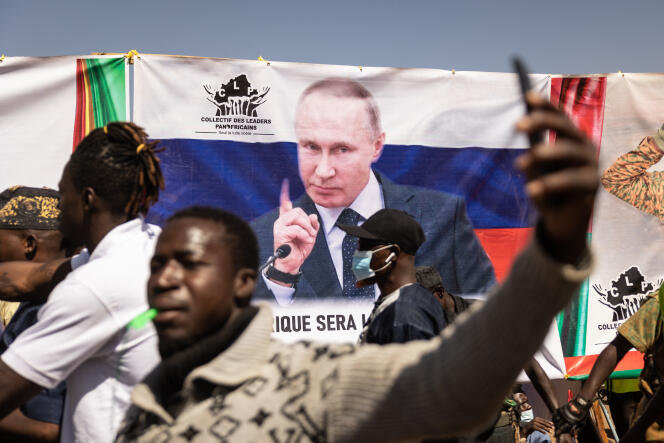


The name Wagner has disappeared, but the reference to Nazi Germany remains. Russia's presence in the Sahel region of West Africa has taken on a new brand: Africa Corps. While the Wagner paramilitary group owed its name to its founder Dmitry Utkin's admiration for the German composer who influenced the Third Reich's aesthetics, the new name is directly inspired by the Afrika Korps, the German battalions that fought in North Africa during WWII.
Although the reference is similar, the Russian government has continued to overhaul Yevgeny Prigozhin's private security company, which has fallen out of favor in Moscow since the aborted rebellion launched by its leader – who died on August 23. From the Central African Republic (CAR) to Libya, via Sudan and Mali, Wagner had been building an empire since 2018. This model enabled Russia to make major strategic inroads at the expense of the West, especially the French, but it had become too autonomous from Moscow's perspective.
The name "Africa Corps" first appeared on Telegram on November 20, in a post by military blogger Two Majors, who is close to the Russian defense ministry. The post quoted Igor Korotchenko, a former colonel and editor-in-chief of Russian magazine Natsionalnaia Oborona ("National Defense") – as well as a frequent guest on the 60 Minutes television program on public broadcaster Rossiya 1 – announcing that an Africa Corps was "being formed." Korotchenko added that the creation of this new organization follows Russian Deputy Defense Minister Yunus-bek Yevkurov's visit to Benghazi (Libya), where he met with Marshal Khalifa Haftar, the "strongman" of Cyrenaica (the eastern province).
Yevkurov, tasked by Vladimir Putin with taking Wagner back in hand in coordination with the military intelligence agency (GRU), had made two visits to Benghazi: The first on August 22-24 – simultaneous with Prigozhin's fatal airplane crash – and the second on September 17. He returned a third time on December 2 as part of an African tour that also took him to Mali, Burkina Faso and Niger. This itinerary unambiguously highlights the outline of a new sphere of influence that is reconfiguring African geopolitics.
While Haftar's Cyrenaica and Mali had been well-established Wagner partners for many years, the Kremlin's breakthrough in Burkina Faso and Niger – two Sahelian states that experienced coups in 2022 and 2023, like Mali had before them – is more recent. The emergence of this new pro-Russian bloc in Africa is fraught with strategic consequences, at a time when Moscow has regained confidence in the Ukrainian theater and the rift between the West and the "Global South" is widening as a result of the war in Gaza.
You have 70% of this article left to read. The rest is for subscribers only.
